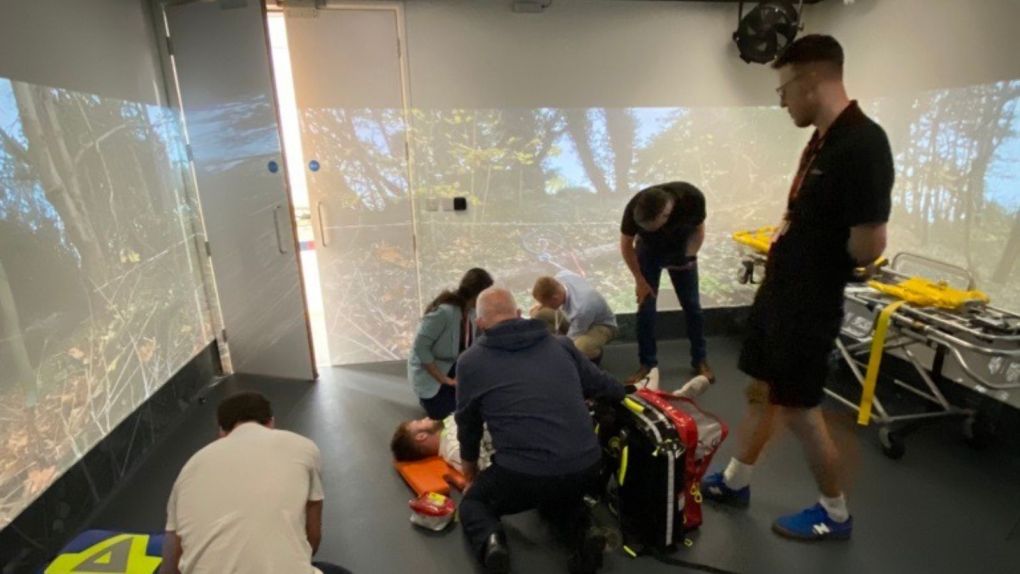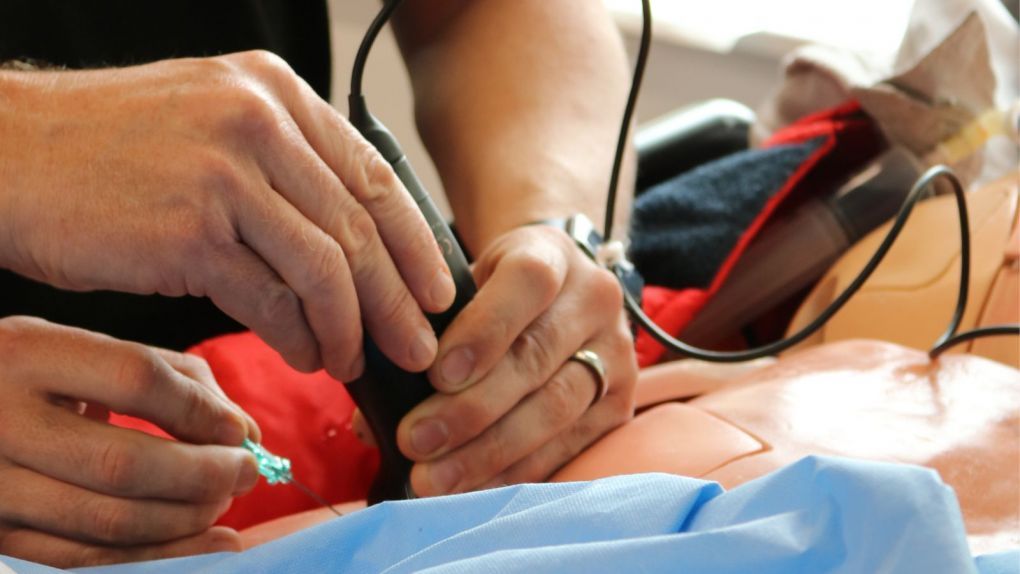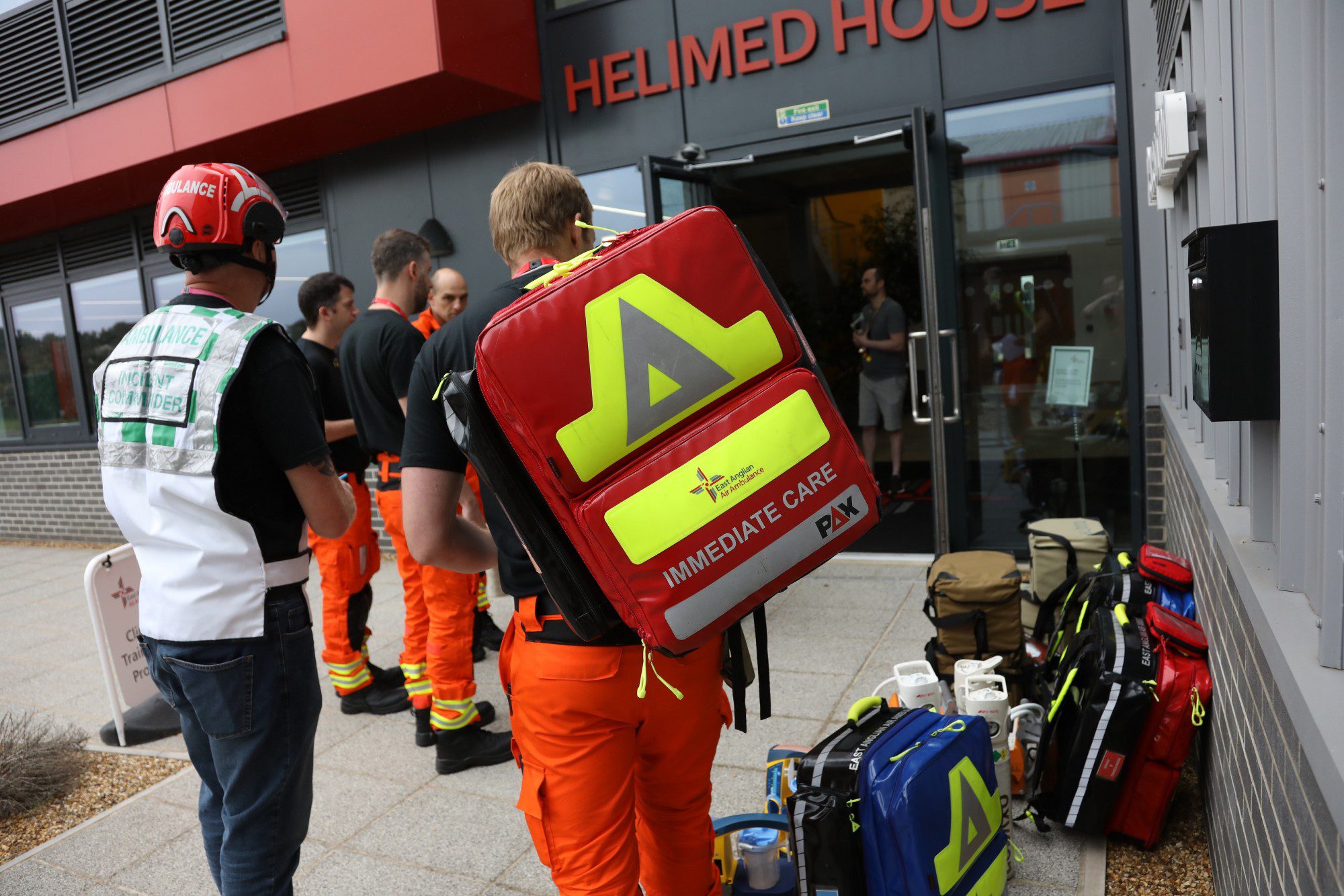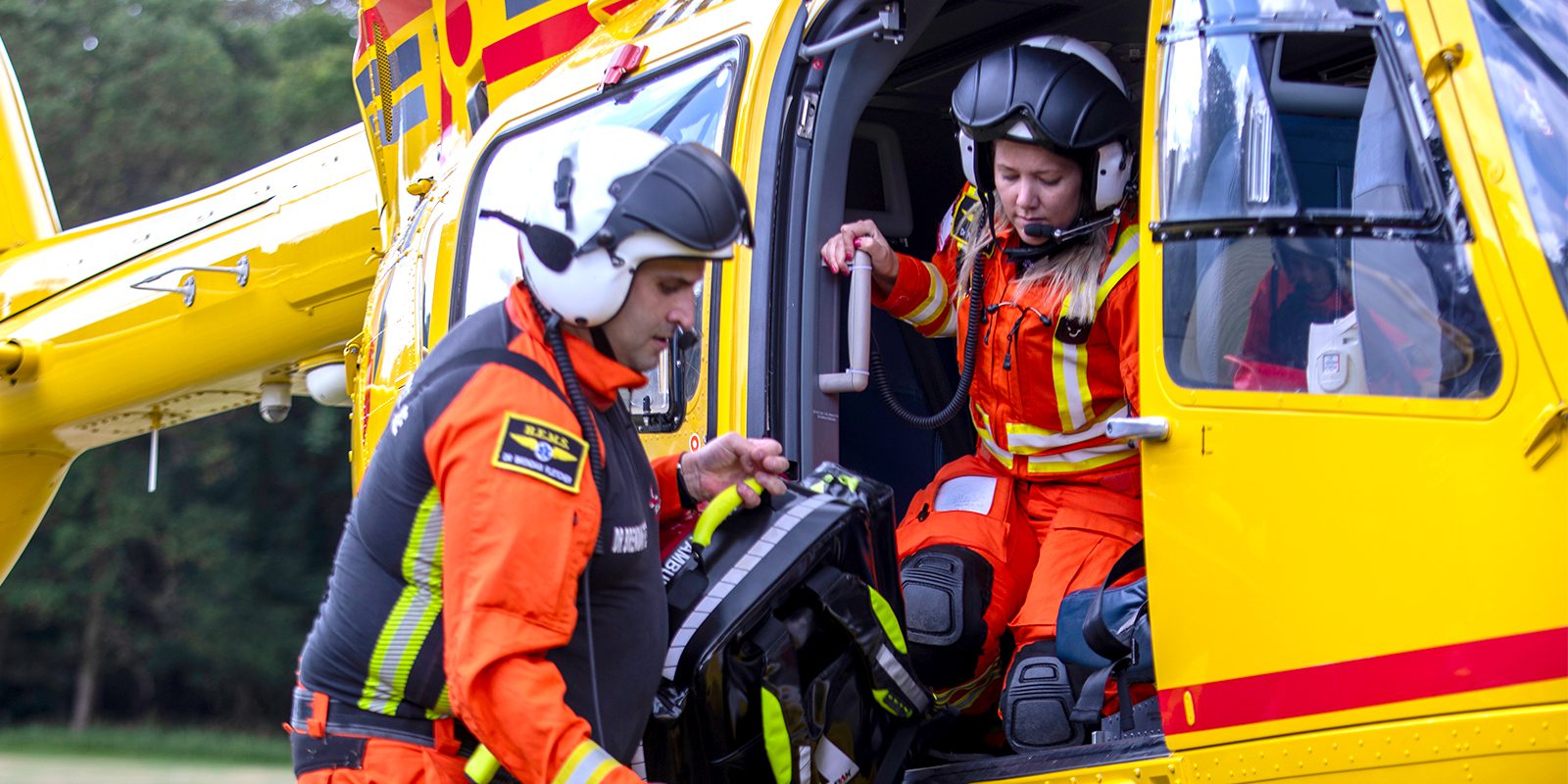Learn More about POCUS
Point Of Care Ultrasound (POCUS) is used by Emergency Medicine, Intensive Care, Anaesthetics and Pre-hospital specialist to add valuable information to a clinical assessment. The internationally recognised acronym is a procedure clinicians carry out at the patient’s side. It differs from diagnostic ultrasound as it is used to inform decision-making at the scene of a medical emergency.
Point Of Care Ultrasound
EAAA uses Point Of Care Ultrasound (POCUS in a variety of medical emergencies. For example, at the scene of a cardiac arrest, the handheld ‘butterfly ultrasound probe’ can be attached to the crew’s iPad. This then acts as the display device so clinicians can see whether there is fluid surrounding the heart and whether it is beating.
It can also be used to look at other organs, such as the lungs to determine whether they have collapsed because of a trauma, or inside a patient’s abdomen to check for internal bleeding.
The scans can be uploaded at the scene to a secure cloud system. This means they can be reviewed by a team of ultrasound specialists at EAAA so they can give feedback to the crew on scene in real-time or provide information in advance to hospitals.
With a more accurate diagnosis, we can also determine the most appropriate hospital to transfer the patient to, for example, to a major trauma centre which has the capabilities to further treat a patient’s injuries or condition. This helps to give people the best chance of surviving and recovering from a life-threatening emergency.
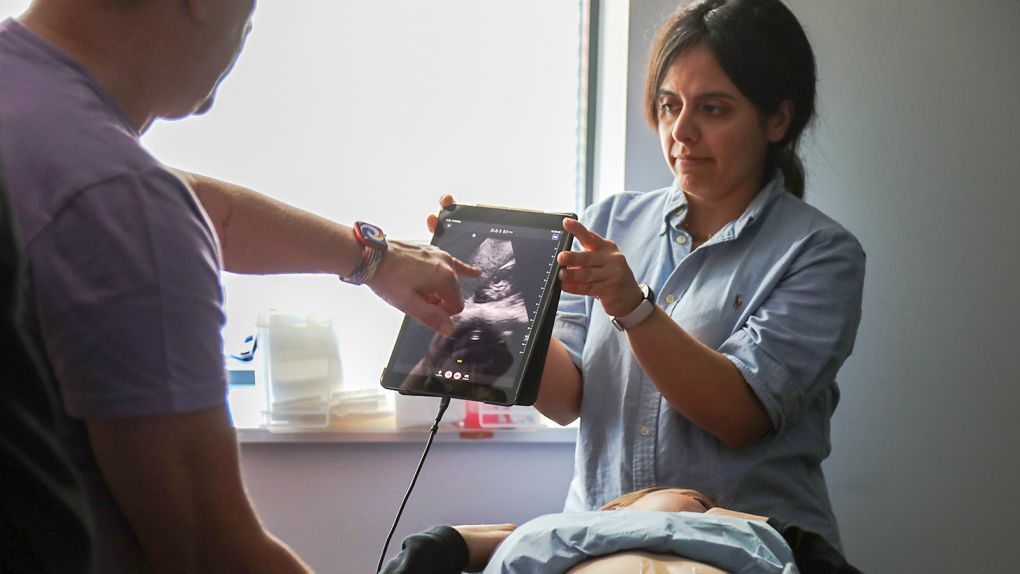

POCUS enables us to be more accurate with our diagnosis at scene and helps us to make more informed decisions about how best to treat patients and perform procedures and interventions in the pre-hospital environment.

— Dr Toby Edmunds, POCUS Course Leader, EAAA
Sharing our knowledge with others
EAAA delivers POCUS courses through our Academy of Pre-hospital medicine. Our POCUS course is unique in that we teach clinicians the basics of scanning and then how to apply it to pre-hospital cases.
We have an expert faculty that have a multitude of different accreditations and are active in acute care settings and provide a wealth of knowledge.
The course, which is endorsed by The University of East Anglia, also demonstrates how clinical governance is the lynchpin to effective POCUS use in any organisation.
